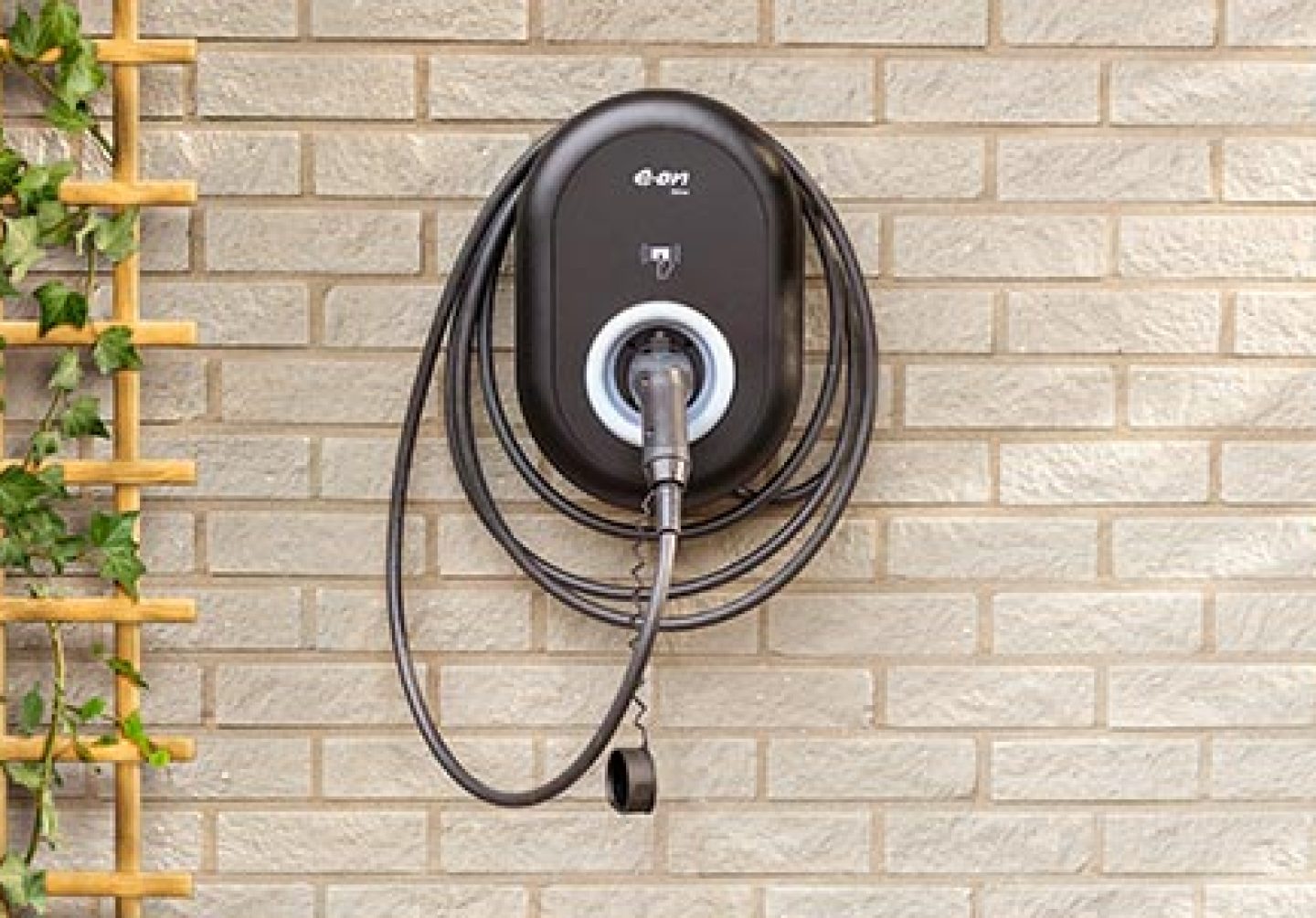Charging at home – the basics
There are a few ways to charge your car at home, starting from the most basic – a three pin plug, to speedy smart home chargers running on an upgraded 3-phase supply.
EV batteries are lithium-ion batteries, just like those in your mobile phone, and charging one is just as simple. You plug in at night and wake up to a fully charged battery. But electric car batteries are much bigger than mobile phone batteries so to charge them at speed you’ll need a dedicated home charger designed to efficiently charge your car at an average speed of around 7.4kW on a typical single phase, home supply.
Charge your electric vehicle at home is with an EV home charger. With a range of EV Charging Devices available on the market, you’ll have a plethora of options to choose from. Whether you want a device that charges your electric vehicle using renewable energy sources or one that provides insights and features through a companion app, there’s a charger out there to suit every home.
A 7kW (kilowatt) EV charge point will provide up to 30A to your vehicle – adding between 20 and 30 miles of range to your vehicle for every hour it is plugged in.
Using a domestic socket to charge your vehicle will supply about 10A (amps) to your vehicle – which will add between 3 and 10 miles of range per hour of charging time. However, it’s important to take into account that 3-pin charging cables aren’t as safe as a fully installed charge point. The electrical demand from charging your EV can become too much and can potentially cause a fire. For this reason, it is not a recommended form of EV charging, and most professionals strongly advise against using this method.
